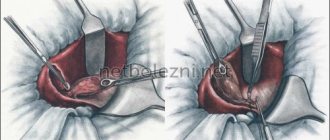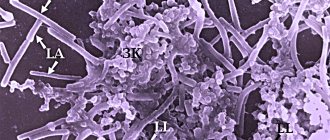Kidneys are a paired organ in the human body. They belong to the urinary system and are a powerful natural filter. Kidney health is an important condition for the full proper functioning of the body.
The kidneys are dense, bean-shaped organs that are dark red in color. They are located in the lumbar region on the surface of the posterior wall of the peritoneum on both sides of the spine. The kidneys are attached to the diaphragm by connective tissue, which also insulates them from other organs. The kidneys are located in recesses that are formed by muscles and skeleton and are additionally fixed by fatty tissue.
The right kidney is located slightly lower (1-1.5 cm) relative to the left organ, which is due to pressure on it from the liver. The weight of the kidney is 120-200 g. The normal length of the kidney in an adult is 10-12 cm. And, accordingly, the thickness and width are 3-4 cm and 5-6 cm.
The kidneys in men, compared to women, are larger and located slightly higher. In childhood they are omitted. The kidneys rise and enlarge as the child grows up against the background of the gradual formation of muscles and skeleton by approximately 10 years.
Cleansing facilities of the body
The kidneys are a complex processing complex that passes through about 200 liters
of blood every day. During this work, about two liters of waste, consisting of more than 150 different substances and excess water, are filtered.
Drink water
Lack of fluid affects not only the kidneys, but other organs. Find out what you should drink and how much you should drink to stay healthy.
Waste is formed as a result of the work of all cells in the body, as well as during the digestion process.
What remains after the absorption of nutrients accumulates in the blood and can lead to poisoning and even death
of the body. Harmful substances and excess water filtered by the kidneys are eliminated from the body in the form of urine. This fluid collects in the renal pelvis, descends through the ureters into the bladder, where it accumulates and is then removed.
Signs of disease development
Different diseases have specific symptoms. But at the same time, it is necessary to undergo an examination if the following manifestations are present against the background of increased fatigue:
- Body temperature is 37°C–37.5°C, which increases slightly in the evening.
- Frequent and painful urination.
- Changes in the color of urine and the presence of blood traces in it.
- Swelling around the eyes and on the limbs.
- Aching pain in the lower back.
Renal colic is an acute pain attack that can cause vomiting and loss of consciousness. It occurs when pressure in the upper urinary tract increases. This condition often occurs when the ureter is blocked by a stone.
How do filters work?
Dangers of protein diets
Protein diets, such as the popular Kremlin diet, increase the load on the kidneys, liver and cardiovascular system. Give up unbalanced diets in favor of healthy eating.
Blood filtration occurs in the tiny cells of the kidneys -
nephrons
.
There are about a million of them in each kidney. On one side, capillaries with blood enter the nephron into the so-called glomerulus
, and on the other, urine is released through the tubules. The glomerulus acts as a filter, allowing the blood to remain normal and excess fluid and waste to be removed.
Take care of your kidneys
Despite such important functions, the kidneys are one of the most vulnerable organs to disease. There is no information among the masses about suitable prevention. This is necessary because most kidney diseases are asymptomatic. Patients turn to doctors too late, when the impairment of kidney function is so severe that it affects the functioning of other organs.
Scientists estimate that every tenth person on our planet suffers from chronic kidney disease (CKD). According to most doctors, kidney disease is almost always asymptomatic, so many people are unaware of its presence. This is why it is important to have regular checkups with a urologist, especially if you have chronic conditions that can damage your kidneys.
The main test of kidney function is serum creatinine level. Based on the concentration of creatinine, it is calculated using a certain formula, the so-called glomerular filtration rate (GFR). If the kidneys are damaged and the condition persists for more than 3 months, GFR is used to assess the severity of chronic kidney disease. The second basic and very inexpensive test to assess kidney function is a urine test.
The above tests should also be performed at least once a year in people with hypertension, cardiovascular disease and chronic urinary diseases such as recurrent kidney stones.
What disrupts kidney function?
Most kidney diseases involve damage to the nephrons, causing them to lose their ability to filter. Damage to nephrons can occur quickly, for example as a result of injury or poisoning. However, most kidney diseases are accompanied by slow and silent
destruction of nephrons.
In this case, kidney dysfunction appears only after several years or even decades. The two most common causes
of kidney disease are diabetes and high blood pressure, both of which place significant strain on the kidneys.
In addition, a serious factor in the development of kidney disease is an unbalanced diet. Thus, excess protein, spicy, salty and sour foods
, alcohol, smoking and daily
lack of fluid in the body
force the kidneys to work harder.
If a large amount of minerals, protein and too little fluid pass through the kidneys, stones
. Learn more about preventing urolithiasis and other kidney diseases.
Features of diseases
- Understanding what a kidney is, you also need to know what pain symptoms occur when the organ malfunctions. Despite the fact that pain always occurs in the lumbar area, only a doctor can identify it based on the tests and examinations performed.
- Kidney pathologies are always accompanied by pain of varying intensity. Against this background, there is a deterioration in general well-being, which is expressed by increased weakness, frequent and painful urination, change in the color of urine and other unpleasant symptoms.
All kidney diseases are dangerous, so it is necessary to undergo timely treatment. Factors that can lead to malfunctions of the organ:
- Hypothermia.
- Promiscuous sexual contacts.
- Unbalanced diet.
- Bad ecology.
- Heredity.
According to the place of development of the pathological process, four categories of diseases are distinguished:
- Urolithiasis, caused by the appearance of increments in the organ
- Pyelonephritis, manifested by inflammation of the kidneys due to infection.
- Hydronephrosis, which develops when the outflow of urine is disrupted.
- Glomerulonephritis, which occurs when tissue is damaged and is manifested by inflammation.
When, against the background of various diseases, the functioning of the kidneys is disrupted and pathological processes occur, they speak of the development of renal failure. In this case, the organ does not perform its functions fully, which leads to malfunctions in many systems of the human body.
Factors affecting kidney health
The urinary system, along with the liver, is the main factory for detoxifying waste, intermediate metabolites, drugs, and vitamins.
What can harm the urinary system?
- Unfavorable environment
- Air and drinking water pollution
- Toxins from food
- Excessive medication use
- Bad habits
- Unhealthy diet
- Frequent infections
- Chronic pathologies
- Inflammatory processes in the pelvis and glomeruli
- Toxic lesions or hypoxia (oxygen deficiency due to impaired blood flow)
For a long time, the kidneys may suffer silently; the person does not feel pain or other symptoms, although the functioning of the organs has already deteriorated significantly.
Diet for kidneys
Food has a great influence on kidney function. Be sure to limit salty foods and abandon the protein diet.
The menu should include vegetables and fruits that stimulate kidney function and have diuretic properties: celery, dill, parsley, eggplant, tomatoes, strawberries, wild strawberries, pears, cranberries, watermelon. Some herbs also have a diuretic effect: birch leaf, parsley root, horsetail herb.
Herbal infusions are especially recommended for people suffering from kidney stones. They help relieve painful symptoms of the disease in the form of colic. Adequate hydration is also very important for kidney stone prevention and kidney care.
It is recommended that fluid intake be approximately 500 ml more than the amount of urine per day, which on average means consuming about 2 liters of fluid per day.
When preventing kidney disease, it is also important to avoid the use of nephrotoxic substances that damage the kidneys, such as painkillers, and to ensure proper metabolic control of diabetes and blood pressure.
Kidney pain: main causes and symptoms
The kidneys are a vital organ, which bears great responsibility for processing and removing toxins, waste products and waste from the body. This organ functions around the clock, but how can you understand that the kidneys are hurting and not something else, because lower back pain can be for various reasons. An ordinary person is rarely able to independently determine the cause, so if you have lumbar pain, it is better to immediately go to a therapist.
The main reasons for pain in the kidney area may be:
- Pyelonephritis is an inflammatory disease of the kidneys, often of bacterial etiology. Accompanied by mild pain, usually on one side. May occur due to cystitis.
- Urolithiasis is one of the most common causes of pain in the kidney area. This condition does not manifest itself in any way until the stones begin to move. As a result, sharp and quite severe pain appears. An increase in temperature may occur.
- Glomerulonephritis is a kidney disease on both sides, the main cause of which is damage to the renal glomeruli. The pain symptoms are mild, the main signs are swelling, impaired urination, and impurities in the urine.
- Renal failure is a violation of the proper functioning of the kidneys, resulting in the death of kidney tissue. The disease is serious and manifests itself with various symptoms: lower back pain, swelling independent of the amount of fluid taken, increased blood pressure for no apparent reason, frequent urination at night, dry skin.
- Nephroptosis is displacement of an organ as a result of mobility. Signs include dull pain, especially after exercise, infrequent abdominal pain, and the presence of protein in urine and blood tests.
- Atherosclerosis of the renal arteries - the disease is a consequence of atherosclerosis. Cholesterol plaques appear in the lumen of the renal artery, which impairs blood circulation in the organ. Periodic pain and high blood pressure are noted.
This is not the entire list of diseases that result in pain and discomfort in the kidneys. Kidney diseases, being a pathology, provoke a disruption in the proper functioning of the organ, as a result of which the entire body begins to suffer. Most often, various infections have a detrimental effect on organs. They are the ones that render the organ inoperable, resulting in pain, stagnation of urine and more serious problems.
The functioning of the renal structures may also be impaired due to the presence of cysts or tumors. For example, a kidney cyst very often does not manifest itself in any way until it increases in size and begins to put pressure on neighboring organs. In this case, there is pain in the lumbar region, dull pain in the ureter, blood may appear in the urine and a disturbance in the outflow of urine.
Sometimes the symptoms of a diseased kidney can imitate completely different diseases that have nothing to do with this organ. To dispel all doubts, at the first signs you need to contact a practicing specialist to identify a diagnosis. Remember, the kidneys are an organ that does not tolerate irresponsible treatment of itself, and if the cause of pain lies in them, then urgent treatment is required.
What can you do at home for kidney pain?
Naturally, many patients have a question, if their kidneys hurt, what to do. It is almost impossible to determine pathology at home. To identify the cause, it is often necessary to have your kidneys checked by a urologist (nephrologist), take the necessary urine and blood tests, and also undergo an ultrasound of the kidneys. Laboratory methods and instrumental diagnostics allow us to correctly judge changes in the organ and draw conclusions.
Quite often, many patients do not know where a person’s kidneys hurt. Incorrect diagnosis, inaction or self-medication using traditional methods or incorrectly selected drugs can lead to negative consequences for the entire body.
You can make an appointment with a doctor by calling
+7+7 (495) 980-13-16
Structure and functions of the urinary system
The kidneys are a key part of the urinary system.
Every healthy person has two of them, they are located deep in the abdominal cavity, on the back. They are located in the area of the border between the chest and abdominal cavity, on both sides of the spinal column, the upper third is covered by the ribs for additional protection in case of shocks or falls. The organs are shaped like beans; in adults they are the size of a human fist. If the kidneys are healthy, they filter about 200 ml of blood every minute, removing waste metabolic products, excess salts, and water in the urine.
The active work of organs maintains electrolyte balance - the correct ratio of minerals (sodium, magnesium, phosphorus).
They regulate protein metabolism, synthesize hormones that maintain stable blood pressure levels, and produce erythropoietin, a compound that stimulates the bone marrow to produce red blood cells (erythrocytes).
Kidney health is important for maintaining skeletal strength - they regulate the metabolism of calcium and vitamin D.
When is an ultrasound scan of the adrenal glands prescribed?
An ultrasound may be prescribed if adrenal disease is suspected. Symptoms of such diseases are:
- muscle weakness;
- weight change (loss or, conversely, excess weight gain);
- chronic hypertension (high blood pressure) or hypotension (low blood pressure);
- sexual dysfunction, decreased potency, menstrual irregularities, excess hair growth.
Ultrasound of the adrenal glands can reveal:
- cysts;
- tumors;
- hematomas;
- foci of inflammation;
- increase in the size of the adrenal glands (hyperplasia).









